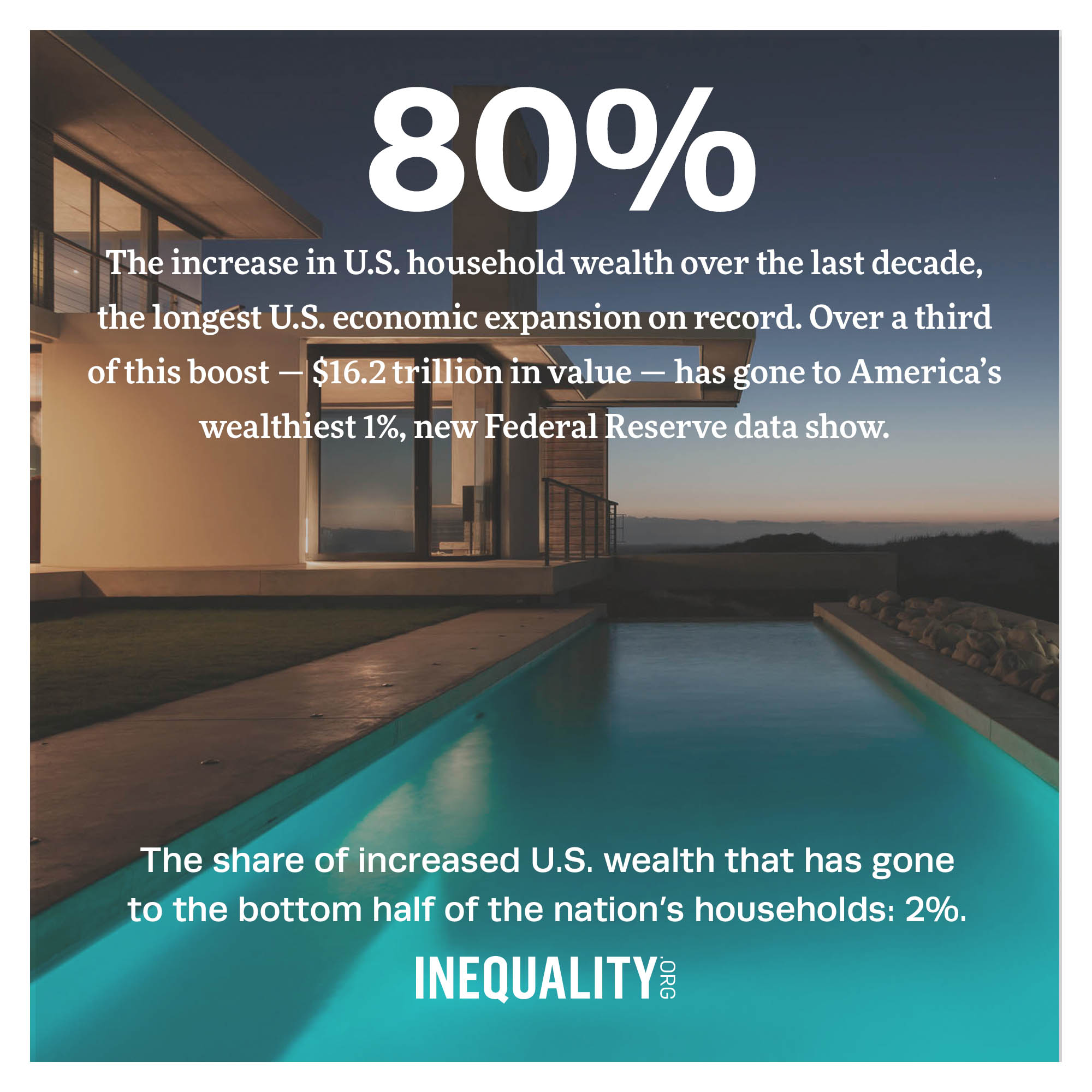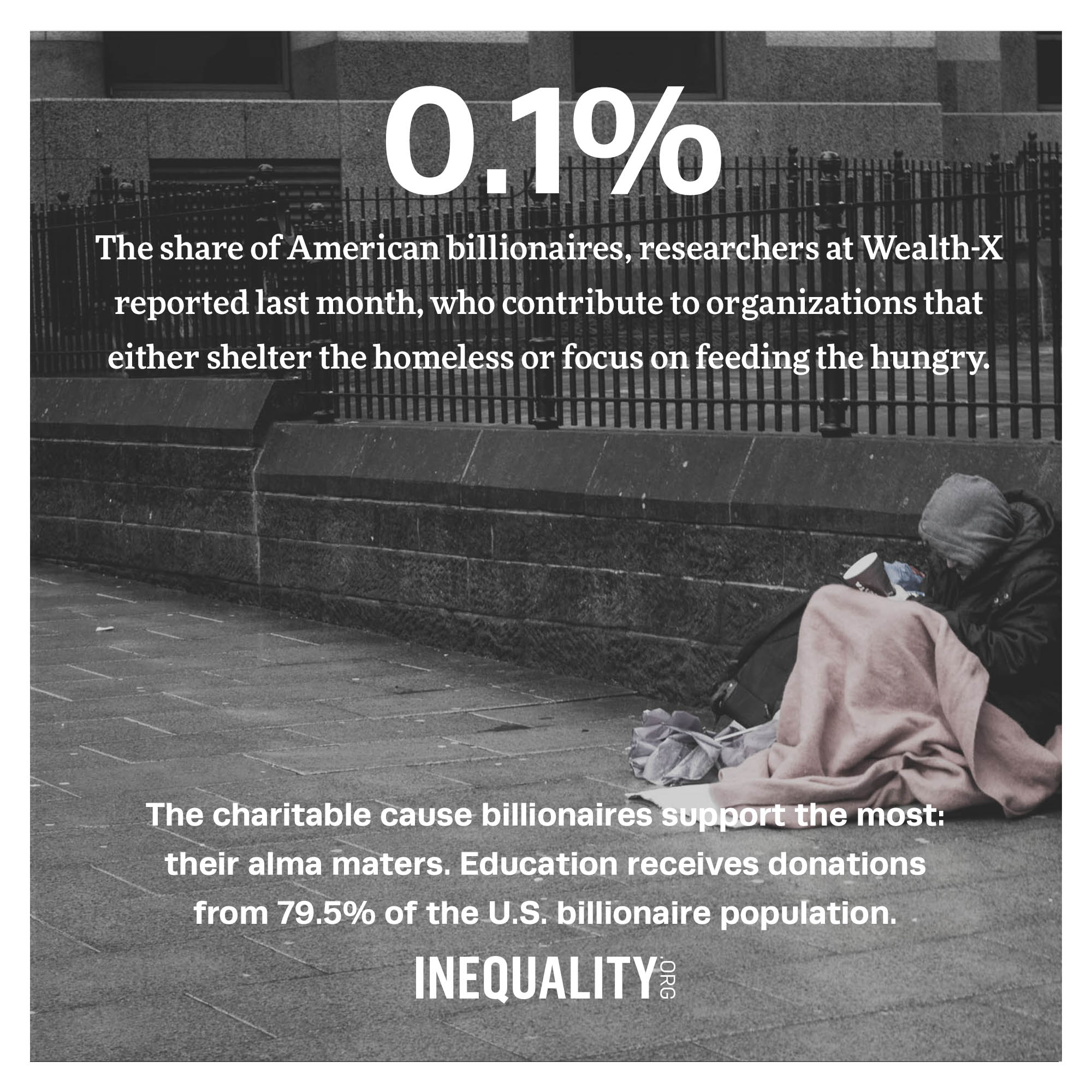We can afford to make the investments that would create a peaceful, democratic, and equitable economy. Indeed, we canít afford not to make these investments.
|
THIS WEEK
|
Six months ago, many of us may have hesitated to say the words. But thanks to a political season of bold ideas — and growing public anger at four decades of extreme inequalities of wealth and power — all of us can now utter the phrase in polite company: Time to tax the very rich!
Last month, on June 25, our Institute for Policy Studies co-produced with the Economic Policy Institute a conference that broke new ground with a say-it-straight title: Taxing the (Very) Rich: Finding a Cure for Excessive Wealth Disorder. Over 21 organizations joined us in co-hosting this sold-out conference at the Mayflower Hotel in Washington, D.C.
Those of you who weren’t able to join us in person last month can now watch the day’s incredible panels and presentations, including keynotes from New York Times columnist Paul Krugman, Rep. Jan Schakowsky, and Sen. Chris Van Hollen. More in this week’s issue on why we so need to enact the bold ideas this conference surfaced!
Chuck Collins, for the Institute for Policy Studies Inequality.org team |
|
|
|
|
INEQUALITY BY THE NUMBERS
|
 |
|
|
|
|
|
|
FACES ON THE FRONTLINES
|
 |
Activists Turns Up the Heat for Climate Debates
|
| Climate change received only 6 percent of the air-time at the Miami first round of the Democratic primary debates last month, a stat that drives home the need for a dedicated debate on the existential threat that climate change poses. Activists with the Sunrise Movement aren’t settling for anything less. They’re putting pressure on the Democratic National Committee to give climate change the full attention it deserves. The Sunrise Movement’s seven-week plan kicked off with an occupation at the DNC headquarters in Washington, D.C., and local Sunrise hubs are preparing for similar demonstrations ahead of upcoming debates. More this week on their fight. |
|
|
|
|
WORDS OF WISDOM
|
 |
|
|
|
|
|
PETULANT PLUTOCRAT
OF THE WEEK
|
 |
This German Heiress Would Like Life To Be Nicer
|
| With a personal fortune worth just shy of $20 billion, Susanne Klatten ranks as Germany’s richest woman. She and her billionaire younger brother Stefan own a huge stake in BMW and a host of other enterprises. But Klatten these days is feeling a tad annoyed. She doesn’t feel her family is getting the appropriate respect. As the 57-year-old last month told a business journal: “Many believe that we are permanently sitting around on a yacht in the Mediterranean.” Having to be “a guardian of wealth,” Klatten continued, “has personal sides that aren’t so nice.” Also not so nice: How Klatten’s family became fabulously rich in the first place. The family patriarch, Günther Quandt, ingratiated himself to Adolf Hitler early on and became one of Nazi Germany’s biggest armament tycoons, rising in 1937 to the status of “war economy führer.” Quandt’s battery plant would even have its own concentration camp for supplying slave labor. The Quandt family never publicly acknowledged any of this sordid history until after a 2007 documentary on the Quandts ran on German television. Not nice at all. |
|
|
|
|
GREED AT A GLANCE
|
 |
|
|
|
|
|
|
TOO MUCH
|
 |
| A Deep Data Crunch, a New Atlas of Inequality |
| Most of us want to live rich, full lives. What do we mean by that? We don’t mean get filthy rich. Yes, most of us do seek economic security, but we don’t wake up every morning scheming to make ourselves a grand private fortune. We endeavor to be rich in a broader sense. We want to experience the world, meet interesting people, learn from some and inspire others. All this becomes harder when the societies we live in become ever more unequal. The wider the economic gaps that divide us, the smaller the diversity of our social universes become, the fewer new things and people we experience. But can we quantify how growing economic inequality is changing the pattern of our daily lives? Researchers at MIT and Spain’s Universidad Carlos III de Madrid think we can. Inequality.org co-editor Sam Pizzigati, author of The Case for a Maximum Wage, has more. |
|
|
|
|
|
|
MUST READS
|
This week on Inequality.org
Brian Wakamo, We Have the Money to Fix Our Food System. Imagine supporting farmers markets, child nutrition, and local agriculture with money we spend on factory farms.
Elsewhere on the Web
Dedrick Asante-Muhammad and Chuck Collins, Time right to enact reparations, Journal Courier. Until we face the reality of our history — and our present — our society will continue to be marked by arrested development, unequal opportunity and an immoral, living legacy of white socio-economic supremacy.
Felicia Wong, New Rules, New Politics, Boston Review. If the U.S. economy is doing so well, why can't 40 percent of Americans afford a $400 emergency? An intro to the new economics that's exposing the price we pay for tolerating the “sclerosis born of elites’ chokehold on power.”
Byrd Pinkerton and Dylan Matthews, Dead people leave billions in their wills. How long do we have to listen to them? Vox. Could anything be worse than letting billionaires set our public policies? Yes. Letting dead billionaires distort the choices we make.
Mariana Mazzucato, Takers and Makers: Who are the Real Value Creators? Evonomics. Dissecting the narratives that justify huge rewards for the few.
Julia Carrie Wong, 'We all suffer': why San Francisco techies hate the city they transformed, Guardian. Our Golden Gate reality: “When everyone around you is either rich or destitute, being rich doesn’t feel that rich.”
David Grusky, Peter Hall, and Hazel Rose Markus, The Rise of Opportunity Markets: How Did It Happen and What Can We Do? Dædalus. Wealthy parents are seamlessly turning money into high-quality resumes for their kids and creating “the perception that merit just happens to coincide with money."
Ryan Cooper, Conservatives are desperate to absolve the 1 percent, The Week. The very rich, along with the think tanks and foundations they fund, have made quibbling with economists Thomas Piketty and Emmanuel Saez practically an entire academic discipline.
Robert Reich, Should we abolish billionaires? AlterNet. The cost of letting billionaires have enough wealth and power to dictate the rules of capitalism for their own benefit: incalculable.
Christopher Rugaber, Why wealth gap has grown despite record-long economic growth, Associated Press. Economic rewards are streaming to the top. Still. |
|
|
|
|
A FINAL FIGURE
|
 |
|
|
|
|
|
|